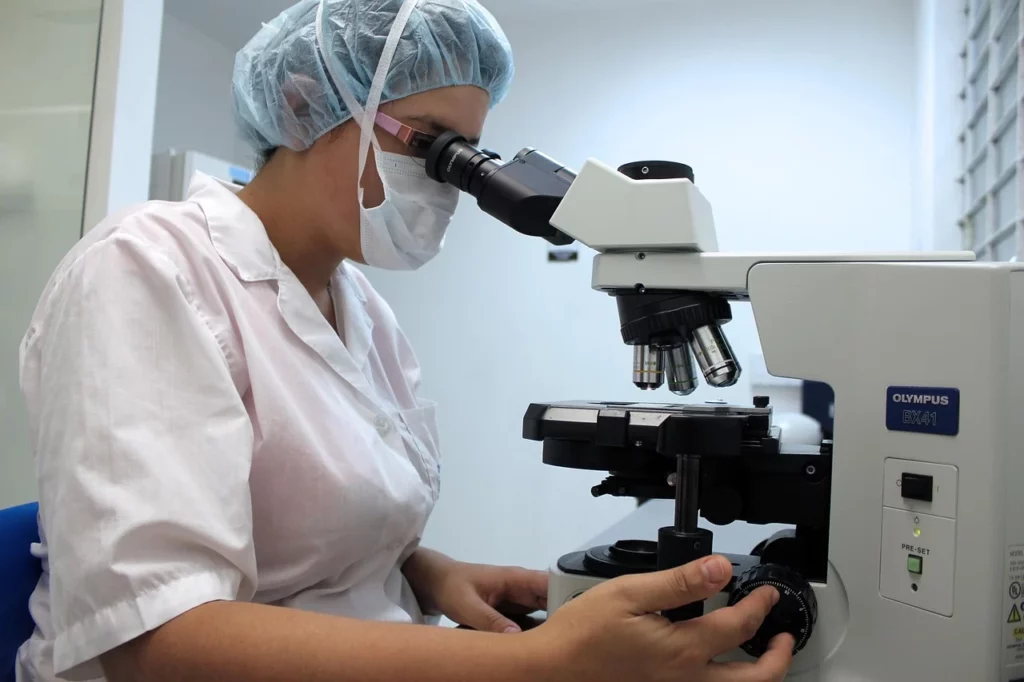Nutritional psychiatry is a new area of study that looks at the amazing connection between food and mental health, providing evidence based information on how nutrition affects mood, recovery outcomes and trauma related conditions. By looking at the biochemical effects of nutrients on neurotransmitter production (serotonin and dopamine) this field shows how food choices affect brain chemistry and emotional regulation. Key concepts include the gut brain axis, autonomic nervous system (ANS) stabilisation and neuroplasticity all of which are critical in addiction recovery and trauma reprocessing. Anti-inflammatory diets and micronutrients are shown to reduce psychological stress and increase mental resilience. Nutritional psychiatry provides a framework for long term recovery combining behavioural medicine principles to support lifelong mental wellbeing through informed nutrition.
The Foundations of Nutritional Psychiatry

Nutritional psychiatry is a new field that looks at how food affects mental health. Unlike traditional approaches that only focus on psychological or pharmaceutical interventions, Nutritional psychiatry uses behavioural medicine principles to address mood disorders, addiction recovery and trauma related conditions. This is based on the understanding that the brain and body are interconnected systems and nutrition plays a key role in maintaining balance and function.
The focus of nutritional psychiatry is on the biochemical interactions between nutrients and brain function. For example, amino acids like tryptophan are precursors to serotonin synthesis, a neurotransmitter that regulates mood. Omega 3 fatty acids support neuronal membrane fluidity and communication between brain cells. These interactions show how food choices impact mental health outcomes.
Behavioural medicine in nutritional psychiatry is about stabilising the autonomic nervous system (ANS) which often gets dysregulated in people who have experienced trauma or addiction. An agitated ANS can lead to anxiety, depression and cravings for substances that temporarily calm the system. By using nutritional strategies – anti-inflammatory foods and micronutrient supplements – clients can calm their ANS and allow for effective trauma reprocessing and recovery.
This field also looks at the long term effects of poor food habits on mental health. Chronic deficiencies in key nutrients like magnesium, zinc and vitamin D have been linked to depression and anxiety. Nutritional Psychiatry corrects these imbalances through targeted dietary interventions and offers a sustainable path to mental wellbeing.
How Dietary Choices Influence Brain Chemistry
Diet and brain chemistry is at the heart of nutritional psychiatry. Nutrients are the building blocks of neurotransmitters – chemical messengers that regulate mood, motivation and stress responses. For example serotonin synthesis depends on adequate levels of tryptophan, an amino acid found in foods like turkey, eggs and nuts. Without enough tryptophan intake serotonin production declines and can lead to mood disorders like depression.
Dopamine, another key neurotransmitter involved in reward processing and motivation, is influenced by dietary intake of tyrosine. Tyrosine rich foods like chicken and cheese can boost dopamine production and mental focus and emotional resilience. But excessive reliance on dopamine driven behaviours like substance use can lead to dysregulation of this system. Nutritional psychiatry aims to recalibrate dopamine pathways through balanced nutrition.
Dietary fats also have a big impact on brain chemistry. Omega 3’s found in fish oil are essential for maintaining neuronal membrane integrity. These fats facilitate neurotransmitter signalling and have been shown to reduce symptoms of depression and anxiety. Diets high in trans fats or refined sugars can impede brain function by promoting inflammation and oxidative stress.
Micronutrients like zinc and magnesium play a supporting role in neurotransmitter activity. Zinc is involved in glutamate signalling – a process important for cognitive function – and magnesium regulates NMDA receptor activity to prevent excessive excitatory responses that can lead to anxiety. Deficiencies in these micronutrients are common in people with mood disorders so dietary correction is a key focus of nutritional psychiatry.
Understanding these biochemical mechanisms allows clients to make informed dietary choices that directly impact their mental health recovery outcomes. By choosing nutrient dense foods over processed alternatives clients can optimise their brain chemistry for emotional stability.
The Gut-Brain Axis: A Key Player in Mental Wellbeing

The gut-brain axis is the foundation of nutritional psychiatry, highlighting the two way communication between the gut and the central nervous system (CNS). This is mediated by the vagus nerve and involves gut microbiota and neurotransmitter production.
Gut microbiota – the trillions of microorganisms in the digestive tract – play a big role in mental health by producing neuroactive compounds like GABA and serotonin. 90% of serotonin is made in the gut not the brain, so it’s important for mood regulation. A diet rich in fibre from veggies and wholegrains supports gut microbiota diversity, boosts serotonin and stabilises emotional responses.
Dysbiosis – an imbalance in gut microbiota – has been linked to inflammation throughout the body including the brain. Chronic inflammation can disrupt neural pathways for mood and cognition. Anti-inflammatory foods like turmeric (with curcumin) can counteract this by modulating cytokines.
The autonomic nervous system (ANS) plays a big role in gut-brain communication. Stress activation of the ANS can alter gut motility and permeability leading to leaky gut syndrome which exacerbates inflammation. Nutritional psychiatry addresses this by recommending diets that support intestinal barrier integrity through probiotics in yoghurt or fermented foods.
New research also suggests the role of short chain fatty acids (SCFAs) produced by gut bacteria during fibre fermentation. SCFAs have been shown to influence brain function by modulating neuroinflammation and enhancing synaptic plasticity – a process important for learning and memory during recovery.
By understanding the gut-brain axis’s influence on mental well being, clients can adopt dietary habits that nourish the gut and CNS. This is how nutritional psychiatry integrates the body’s systems to support recovery from addiction and trauma.
Stabilising the Autonomic Nervous System Through Nutrition
An overactive autonomic nervous system (ANS) is common in people who suffer from anxiety, depression and trauma responses. The ANS, responsible for involuntary functions like heart rate, digestion and the fight or flight response can get triggered easily and cause anxiety and cravings. Nutritional psychiatry recognises that specific dietary interventions can calm the overactive ANS and support balance.
Foods high in magnesium like leafy greens and nuts calm the hypothalamic-pituitary-adrenal (HPA) axis and reduce cortisol production, the stress hormone. By reducing cortisol, magnesium helps to calm the ANS. Foods with low glycaemic index (GI) like whole grains and non-starchy vegetables prevent blood sugar spikes and crashes which can trigger anxiety and irritability. Steady blood sugar levels support a stable ANS response.
Amino acids, particularly L-theanine in green tea, can relax without sedation. L-theanine increases alpha brainwave activity associated with calm alertness. Omega-3s in fish oil have anti-inflammatory properties that reduce inflammation throughout the body including the brain which can calm the ANS. A study in Brain, Behavior and Immunity showed that omega-3 supplementation can reduce anxiety symptoms by modulating inflammatory pathways. By incorporating these nutritional strategies, you can manage and calm your overactive ANS and create a foundation for emotional stability and mental wellbeing.
Nutritional Strategies for Enhancing Neuroplasticity

Neuroplasticity, the brain’s ability to adapt and create new pathways, is key to long term recovery from addiction and trauma. Nutritional psychiatry highlights the role of certain nutrients in supporting this process. A diet rich in antioxidants (found in fruits, vegetables and spices) protects brain cells from oxidative stress and keeps them plastic. Berries are high in flavonoids that improve cognitive function and support neuronal growth.
Brain derived neurotrophic factor (BDNF) is a key protein that supports neuroplasticity by supporting the survival and growth of neurons. Certain nutrients can increase BDNF, and exercise does too and the effect is amplified when combined with targeted nutrition like intermittent fasting which also increases BDNF.
Phosphatidylserine (PS), a phospholipid found in soy lecithin and fish supports the structure and function of neuronal membranes and allows for efficient communication between brain cells. PS supplementation has been shown to improve cognitive performance and reduce age related cognitive decline. Adding these nutritional elements to your diet supports neuroplasticity and allows you to rewire your brain and overcome maladaptive patterns associated with addiction and trauma.
Trauma, Nutrition, and Mental Health Recovery
Trauma affects brain function and mental health. Traumatic events can dysregulate the HPA axis and lead to chronic stress responses and mental health disorders like PTSD. Nutritional psychiatry knows that nutrition is key in processing traumatic memories and stabilising emotional responses.
Inflammation is a result of trauma and leads to neuroinflammation and brain dysfunction. Anti-inflammatory diets rich in omega-3s, antioxidants and phytonutrients can mitigate this. Turmeric (contains curcumin), ginger and leafy greens are anti-inflammatory superstars that support mental wellbeing. Amino acids, particularly tryptophan, help manage the effects of trauma. Tryptophan is a precursor to serotonin which is key in emotional regulation.
Addressing nutrient deficiencies is crucial for trauma recovery. B vitamin, magnesium and zinc deficiencies can exacerbate anxiety and depression. Including nutrient dense foods and considering supplementation under professional guidance can correct these imbalances and support the brain to heal. By understanding how trauma affects brain function and mental health and implementing targeted nutritional strategies, we can regulate emotions and promote long term mental wellbeing.
Anti-Inflammatory Diets: Reducing Psychological Stress

Chronic inflammation plays a big part in mental health conditions like depression and anxiety. When the body is inflamed it can disrupt neurotransmitter production and brain function. This can manifest as increased psychological stress and susceptibility to mood disorders. But an anti-inflammatory diet can be a powerful tool to reduce this and build psychological resilience.
Nutritional psychiatry recognises the role of dietary choices in reducing inflammation. Anti-inflammatory foods are packed with antioxidants, phytonutrients and healthy fats which work together to combat oxidative stress and reduce inflammation in the body. For example omega 3s found in fatty fish like salmon and mackerel have potent anti-inflammatory properties. These fats regulate cytokines – inflammatory molecules that contribute to mood disorders.
Turmeric, a spice containing the active compound curcumin, is another anti-inflammatory superstar. Curcumin inhibits the production of inflammatory enzymes reducing neuroinflammation and supporting mental wellbeing. Other anti-inflammatory foods are leafy greens (spinach and kale), berries (blueberries and strawberries) and healthy fats (olive oil and avocados). By eating these foods you can actively reduce psychological stress and improve your overall mental health.
At Highlands Recovery we understand the importance of nutritional psychiatry and anti-inflammatory diets in building psychological resilience and recovery. Admission is subject to clinical assessment and we may not be able to treat all conditions; clients can be assured of the most world-class private, confidential care.
The Role of Micronutrients in Mental Health
Vitamins, minerals and omega-3s are essential for optimal brain function and nutritional psychiatry. Deficiencies in these micronutrients can impede neurotransmitter synthesis, disrupt neural signalling and increase mental health disorder susceptibility. Nutritional psychiatry advocates for addressing these deficiencies through targeted dietary interventions and supplementation where necessary.
For example, B vitamins (B12 and folate) are necessary for neurotransmitter production and nerve function. Deficiencies in these vitamins are linked to depression and anxiety symptoms. Magnesium, another essential micronutrient, regulates the hypothalamic-pituitary-adrenal (HPA) axis and helps manage stress responses. Low magnesium levels can exacerbate anxiety and insomnia.
Omega-3s (EPA and DHA) are critical for brain health due to their anti-inflammatory properties and neural membrane structure. Research has shown omega-3 supplementation can improve mood, reduce anxiety and support cognitive function.
By assessing an individual’s micronutrient status and addressing any deficiencies, nutritional psychiatry supports optimal brain function and better mental health recovery. These strategies, which may include supplementation, provide a solid foundation for emotional wellbeing and long term recovery. At Highlands Recovery our clinical director is a world renowned expert in his field and leads a team of experts who deliver private, confidential care and excellence for our clients.
Long-Term Benefits of Nutritional Psychiatry for Sustained Recovery

Eating a balanced lifestyle gives long term benefits for emotional stability, relapse prevention and lifelong mental wellbeing, this is the foundation of nutritional psychiatry. By making informed food choices and prioritising nutrient dense foods you can set yourself up for long term recovery.
Nutritional psychiatry aims to promote emotional stability by supporting neurotransmitter balance and reducing inflammation. A diet rich in whole foods, lean protein and healthy fats gives the body the building blocks to make neurotransmitters and regulate mood and reduce mood swings.
Relapse prevention is a key aim of nutritional psychiatry. By stabilising the autonomic nervous system (ANS) and reducing cravings dietary interventions can help you manage triggers and avoid returning to old coping mechanisms. Low GI foods such as whole grains and non starchy vegetables can prevent blood sugar crashes and crashes and reduce cravings.
Ultimately nutritional psychiatry aims to support lifelong mental wellbeing by taking a holistic approach to health. By combining dietary strategies with other therapeutic modalities you can build resilience, improve your overall wellbeing and sustain long term recovery.
Conclusion
Nutritional psychiatry and Nutrition and Mental Health offers a life long approach to emotional stability, trauma reprocessing and relapse prevention. By balancing imbalances through anti-inflammatory diets, targeted micronutrients and calming the autonomic nervous system individuals can have lifelong mental wellbeing. At Highlands Recovery we understand the link between nutrition and mental health. Our world class specialists offer full support, nutritional psychiatryy principles integrated into our four phase recovery programme, in a private and confidential setting.
Personalised support, clients can develop the skills and resilience for long term recovery. Admissions are subject to clinical assessment and we may not be able to treat all conditions.
References
ScienceDirect. (n.d.). Neurobiological effects of stress and trauma. Retrieved from https://www.sciencedirect.com/science/article/abs/pii/S0889159111004685?via%3Dihub
ScienceDirect. (n.d.). Cognitive impairments associated with PTSD. Retrieved from https://www.sciencedirect.com/science/article/abs/pii/S0028390811002784?via%3Dihub
PubMed Central. (n.d.). The role of neuroinflammation in mental health disorders. Retrieved from https://pmc.ncbi.nlm.nih.gov/articles/PMC6272784/
ScienceDirect. (n.d.). Depression and brain connectivity. Retrieved from https://www.sciencedirect.com/science/article/abs/pii/S0165032718329227?via%3Dihub
Asia Pacific Journal of Clinical Nutrition. (n.d.). Nutrition and mental health. Retrieved from https://apjcn.nhri.org.tw/server/APJCN/17/s1/167.pdf
PubMed. (n.d.). The effects of stress on memory function. Retrieved from https://pubmed.ncbi.nlm.nih.gov/12086747/
ScienceDirect. (n.d.). Neural mechanisms of emotional regulation. Retrieved from https://www.sciencedirect.com/science/article/abs/pii/S0006899318301501?via%3Dihub
SAGE Journals. (n.d.). Advances in neurorehabilitation. Retrieved from https://journals.sagepub.com/doi/full/10.3233/NRE-230241
PubMed Central. (n.d.). Brain plasticity in mental health recovery. Retrieved from https://pmc.ncbi.nlm.nih.gov/articles/PMC6469458/





















































